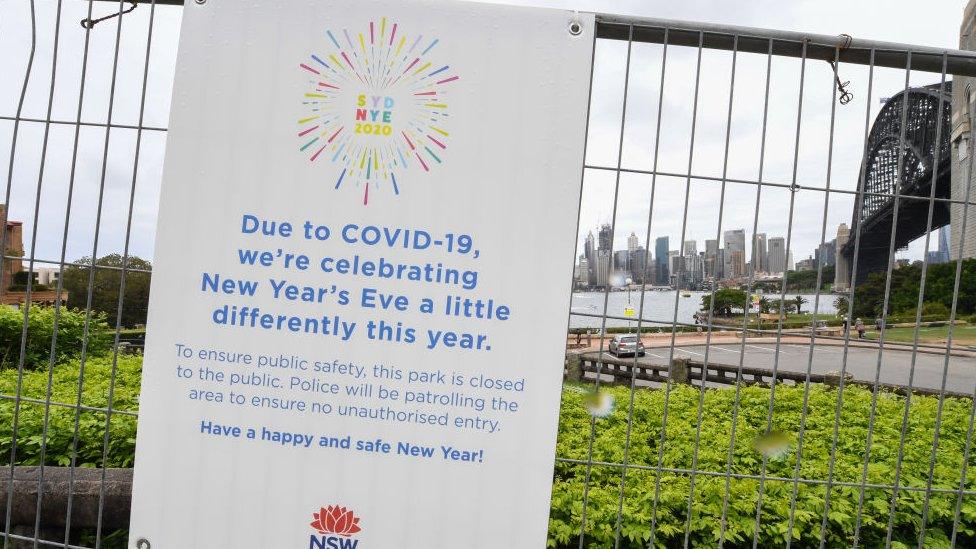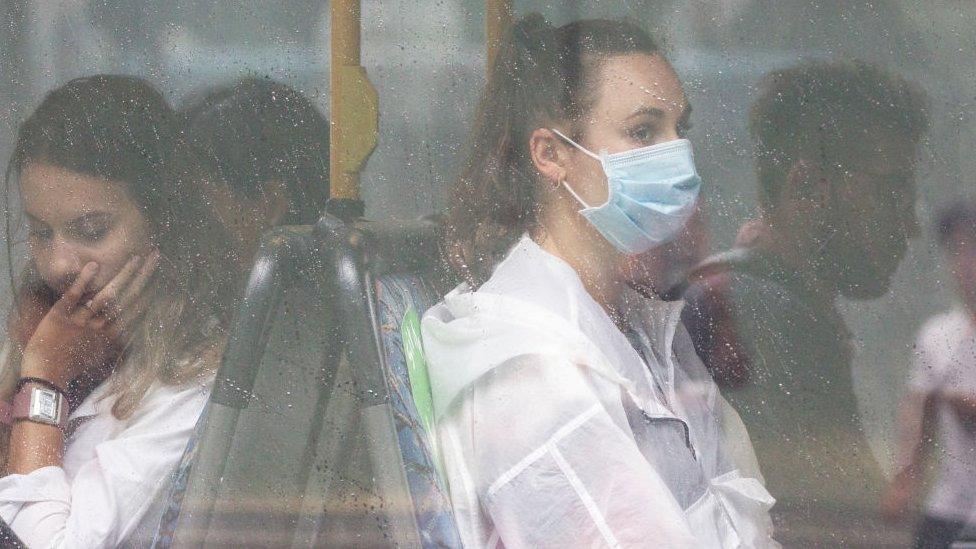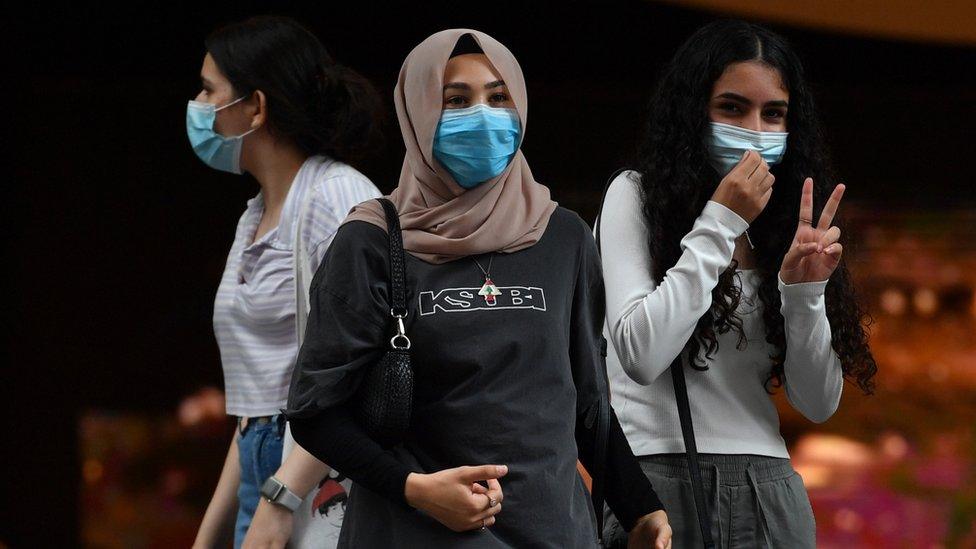Covid: Sydney announces new restrictions ahead of New Year
- Published

Australia has announced new restrictions for Sydney ahead of New Year's Eve celebrations.
The city is battling a worsening outbreak after months of next to no local cases. Officials reported it had grown to 147 cases on Wednesday.
The news comes amid anger over footage of young revellers seen on Sydney's Bronte Beach on Christmas Day.
Immigration minister Alex Hawke said tourists caught flouting public health restrictions could be deported.
The virus's re-appearance in Sydney a week before Christmas sparked a swift re-introduction of restrictions in the city, including clampdowns on holiday gatherings and a lockdown of the worst-affected region, the Northern Beaches.
On Wednesday, the New South Wales (NSW) state government announced further restrictions for New Year's Eve following the discovery of a new cluster in a separate part of the city - believed to have spread during Christmas gatherings.
People were seen singing and dancing at Bronte Beach on Christmas Day
"We don't want New Year's Eve to be the cause of a super-spreader [event]," said NSW Premier Gladys Berejiklian.
Households will now be restricted to only five guests from Thursday, down from the previous 10-person limit. Outdoor gathering numbers have also been cut to 30 from 50.
Every other state and territory in Australia maintains a travel ban on people from Sydney.
Sydney's traditional New Year's Eve fireworks celebrations will still go ahead but authorities have already banned group gatherings at vantage points around the harbour.
Australia has recorded 909 deaths and about 28,300 cases since the pandemic began - a number far lower than many other rich nations.

You may also be interested in:
Sydney beaches were closed for a few weeks in March during the first wave
- Published22 December 2020

- Published21 December 2020
